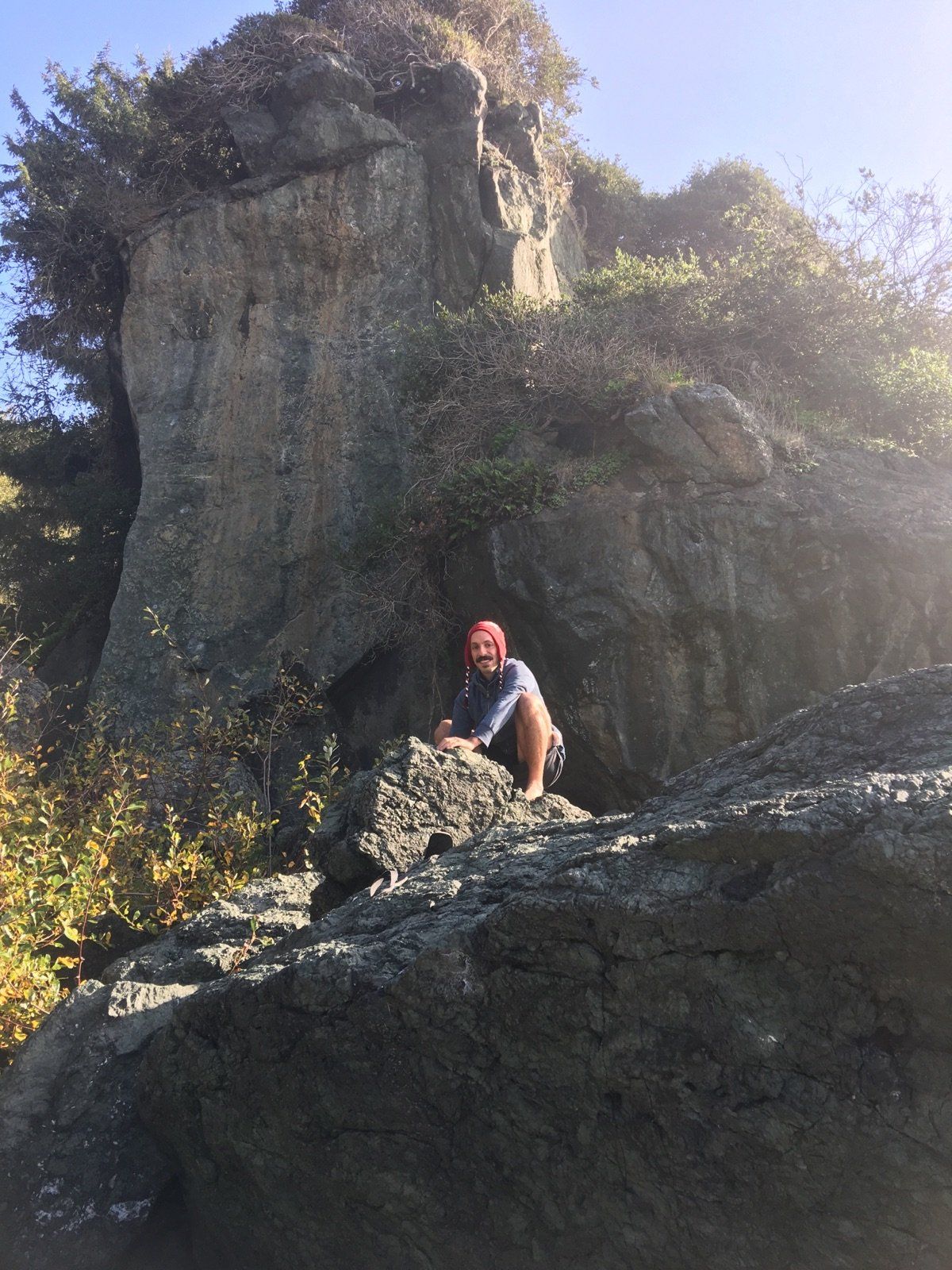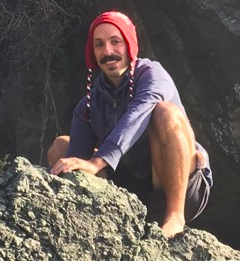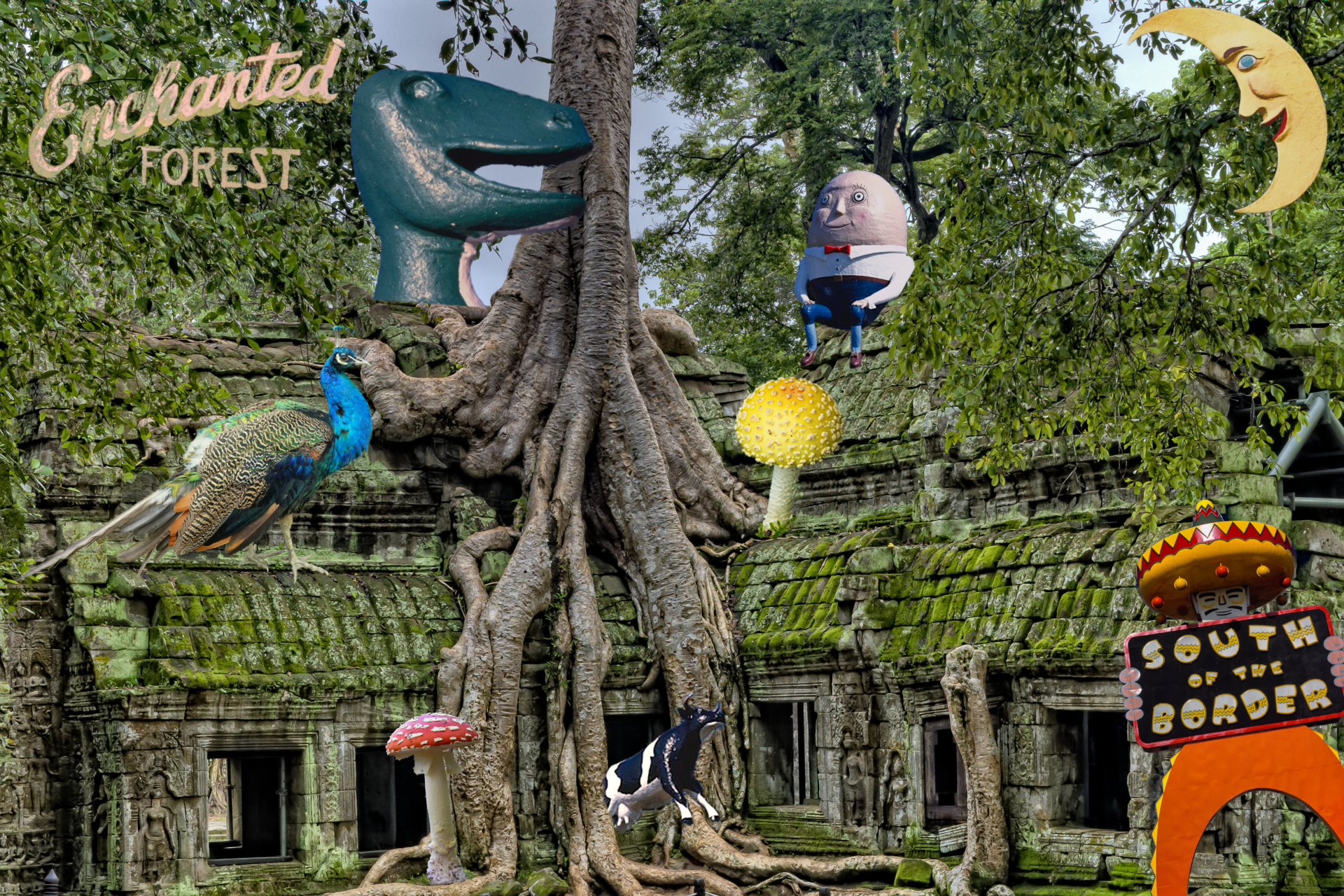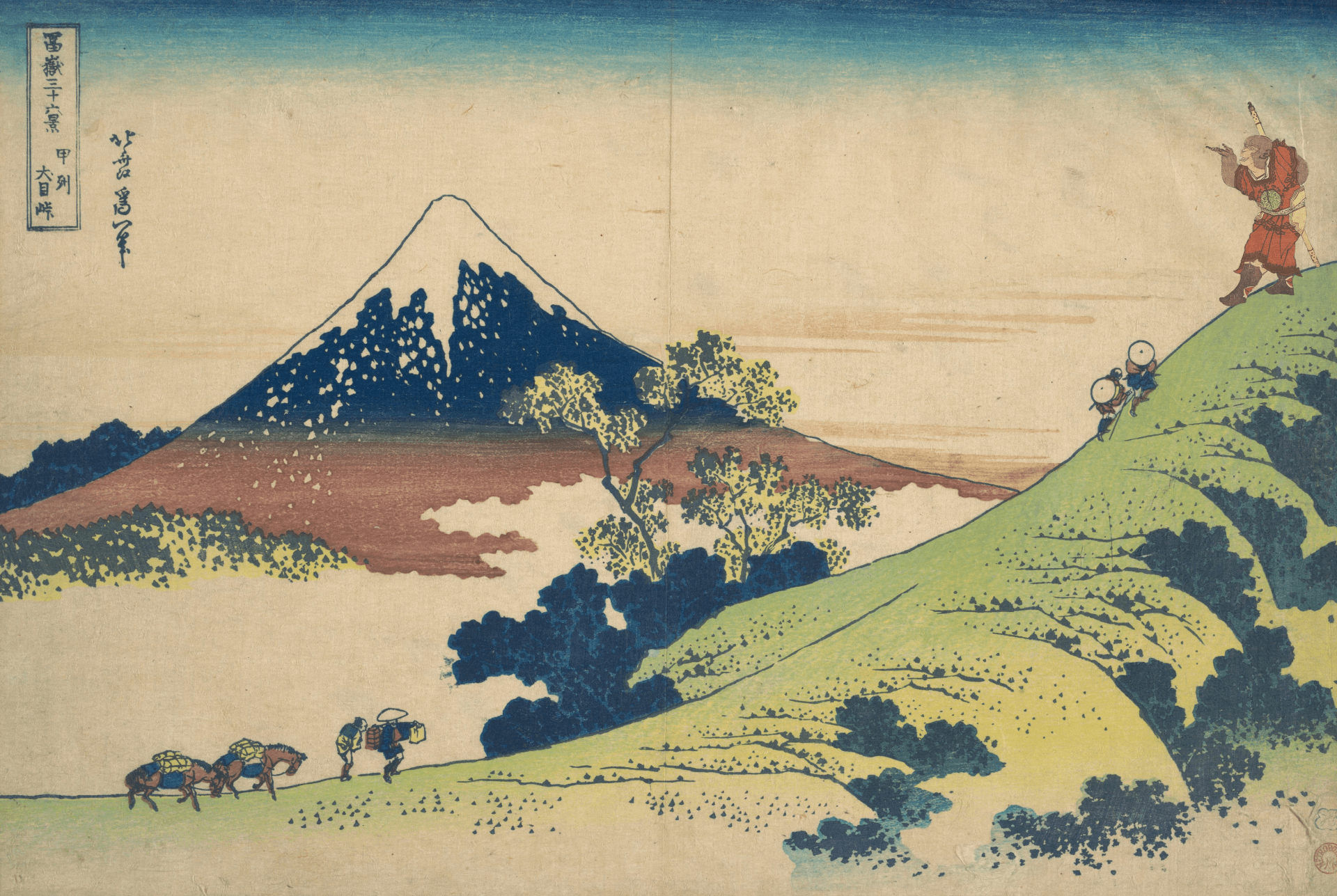
Motivating Factor
Here I pick up the thread of this yarn again and, before wadding it up into a ball and laying it to rest, perhaps to serve as fertilizer for something more fruitful in the future, do a little cat's-cradle sleight of hand to dazzle your eyes.
I told you I didn't like that teacher, right?
I didn't.
I told you I didn't like her class, either, right?
I didn't.
I could be kinder now, and in fact I will; she was just who she was, and given what I know now about "Institutions of Higher Education," I had no reason to expect anything other than indoctrination and paw-puh-gan-duh.
But, to paint a clearer picture for you of the "motivating factor" for the "arousal of disgust" lawfully engendered in me, as Gurdjieff might phrase it -- lemme tell you about this broad.
Leave aside that the class was -- well, brainwashing.
What really got me was her demeanor.
She was soft -- someone who liked to sit, to give herself treats, self-satisfied. She was an adjunct English professor, an M.A.
I got the sense she liked reading romance novels, liked reading in general, and was good at following directions (but not higher flights of intellectuality); to her, it was a dream to lead a nice little kindergarten college-class, not working too hard, not thinking too hard, receiving a little admiration and collecting a little paycheck, and -- leading a rosy little life.
How do I know that?
I read people well.
And, beyond that -- one of our classes (several, actually) entailed us watching a movie while she knitted at her desk.
Isn't that grand?
I think it tells the whole story, that little image.
Well, anyway -- grand for her, maybe.
For those whose higher development was entrusted to her -- not so much.
Elsewhere, years later, I wrote this as a reflection on my Academic Career:
Having been peristaltically forced, like a choice coffee berry, through the dim, dumbly pulsating entrails of a ratlike, omnivorous institution and excreted, intact, though somewhat eroded, through its stinking anus, I await some keeneyed, supremely discriminating consumer to pluck me up, ignoring the dung that adhered to me during the alchemy of my educational transformation .... and grind me up and devour me for a high price. It's the American Dream.
That's irony, of course.
But what I'm saying is, in those days -- woe betide the sleeper or hypocrite to whose door this tumbleweed the winds of fate bore.
In those days, or places, I could be a thorn, or a stinging fly, or an indigestible little motivating factor for the engendering of sore tummies and poor sleep.
So, what I'm saying is, here's what I wrote the teacher about a movie we watched. I was -- 28, I think? Let's go with that.
Don't worry -- I'm much nicer now.
06 April 2022
A Response to and Analysis of The Two Oswalds
That one light may be bent and broken into a hundred hues may itself bend one's belief to breaking; yet so fond may one be of colors that this truth seems a strange thing.
But is not all truth just so, like split light -- partial, perceived as it must be from the perspective of the "I," the limited observer? One wonders, then -- what of those truths in which one has had no primary perception at all, but has rather perceived through a veil and as a groping in the dark? Such a case is the assassination of John Kennedy, which, now so far removed from the truth of a moment, has fractured into a hundred theories. Here I hope to look at that theory called "The Two Oswalds," specifically as described by Nick Patoski, and so see how much of the original image resides in a close-fingered shard.
Immediately, and unfortunately, it strikes me that Patoski is not a sympathetic or objective investigator; and while sympathy is no prerequisite for investigation of data and objectivity exists on a continuum between "illusion" and "conditional convenience," the scientific method of inquiry demands a certain freedom from bias. Is not a scientific inquiry with the aim of revealing truth the goal in investigating JFK's assassination?
Patoski adopts a dismissive tone from the first and uses semantically "heavy" words almost as a rule, so that it is apparent his primary goal is not "truth," but rather ridicule, whatever the actual value of the Two Oswalds Theory (which claims a double was used in the assassination) might be.
Conspiracy theory is itself a loaded term, a meme evoking such associations as "crackpot," "outcast," and "non-consensual perception," as if consensus were ever the sole gauge of truth rather than primarily a socio-political convenience.
In dealing with conspiracy theory and this particular theory's proponent, John Armstrong, Patosky uses other such colored words and phrases as: trendy; some people may have too much time on their hands; refined, if that's the word; suffers from the conspiracy buff's disease; regaled me for hours with minutiae; hardly fits the profile of a conspiracy nut... if sometimes obsessive... (it goes with the territory); why would an otherwise reasonable and successful man behave like this; fallen under the spell of the Two Oswalds; etc.
In fact, Patosky himself seems as summary and superficial in his exposition as those "buffs" whom he seeks to discredit, saying "I sepnt two days in Tulsa" with one man (as if that were enough to discredit any theory) and, in regard to Armstrong's accumulation of data and minutiae, "it would take a lifetime to double-check them all... I'm not going to devote my life to finding out." Spoken like an honest truth-seeker, I'm sure.
Certainly life offers countless diversions according to need and nature, but what one man took less than "a lifetime" to learn, another man might verify at least as quickly. At any rate, if Patosky were interested in weighing claims on their own merit, however light that merit might be, he would concede that a rigorous scientific approach (which demands dispassionate investigation) is the proper scale for such measurement.
As such, red-flagged by the semantic imbalance of the author, I found the list of claims and data provided as Armstrong's (without much detail or context, either) beyond valuation. For that, a less editorial tone and deeper delving would have been appropriate.





